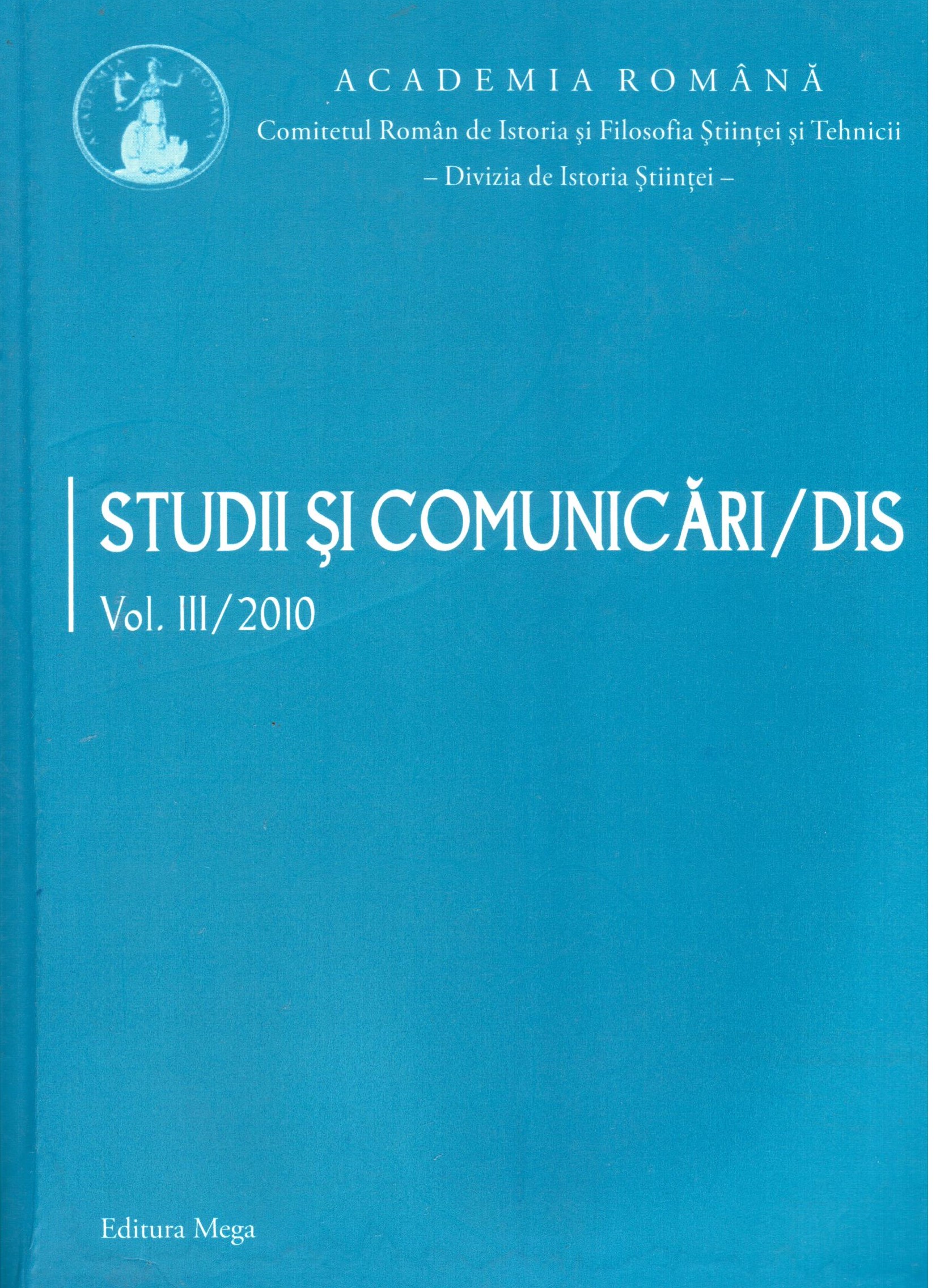Spaţiul de cunoaştere - spaţiul de acţiune: gânduri la aniversarea lui Jacques-Yves Cousteau
Space of knowledge – space of action: thoughts at Jacques-Yves Cousteau’s centenary.
Author(s): Ana BazacSubject(s): Philosophy of Science, Scientific Life
Published by: Editura Mega Print SRL
Keywords: Jacques-Yves Cousteau’s centenary;
Summary/Abstract: The paper discusses the problem of the enlargement of knowledge, as it appears within the theoretical and practical realisation of researchers and innovators: as issue of this realisation, knowledge refers to a deeper and larger space, as well as to a time that seems to no more dominate the man but, on the contrary, seems to be mastered by him. Th rough knowledge, the space and time form the more and more familiar continuum, but not missing the mystery that calls the eff ort of man to challenge his environment and thus to challenge himself. Historically, men have ceaselessly enlarged the space of life; during this process, they have discovered and re-made, by thinking, the anterior time, un-contemporary with them, only imagined, and possibly desired: therefore the future time, in a space without margins, opened up. Jacques-Yves Cousteau was not philosopher but practitioner of the contemporary discoveries of the sea. But his centenary is an opportunity to grasp the confl uence of philosophical and pragmatic signifi - cances of the trajectories of the human thinking and action. The paper discusses three aspects of the problem announced by the title: the water as principle of things in the early pre-Socratic philosophy (Thales) and the forcing of water as hostile environment to the human life to become a friendly and ordinary one: from Leonardo to Cousteau and the researchers of the second half of the 20th century; the slyness of mechanisms and the defeat of the natural limits of the human life; the stretching of the sea – the stretching of the sky: from the ancient wisdom to the contemporary superposing of the forcing of the limits of the human space. The intended conclusion concerns the interdependence between the practical heroism of the forcing of the limits and the (theoretical) human knowledge: indeed, Cousteau was an extraordinary fi gure of the practice of great discoveries of the past century also because he popularised the knowledge that, within the tradition of the intellectual who appreciates his eff ort, has had to remain at hand of the few. For, one can no more forget that, ”knowledge is power” (Francis Bacon). But, following the tradition of the Enlightenment, Cousteau believed that a main reason of his activity, beside the creation of a new space of human manoeuvre, inherently assumed by the world decision-makers, was the transmission toward the many of the possibility of their power within a space always larger than before. For without the enlargement of the possibility of knowing, there is no possibility to act: as we all see today, the domain of ecology, the preservation and harmony of the single ”best of all possible worlds” can be realised only through the pressure of the many. For this reason, popularisation is neither an inferior scientifi c activity nor an inferior domain in front of the research as such/the academic research, but constitutes a sine qua non aspect of these ones. „Le Commandant” Jacques-Yves Cousteau was one of the brilliant but, unfortunately, rare citizen-researchers of the former century, deeply motivated by the necessity to share the happiness of the enlargement of knowledge to a more and more bigger number of people: just his model, far from being eccentric, is the one propitious to the 21st century. Indeed, the surpassing of the crises by the scientific and technical revolutions is possible only though the generalisation of the high level knowledge, only through the becoming of the citizens of the world as researchers of the infi nite space. But the infinity of space is not a simple presupposition, empty of sense and mechanically repeated: the infinity of space is created by the man.
Journal: STUDII ȘI COMUNICĂRI/DIS
- Issue Year: 3/2010
- Issue No: 3
- Page Range: 125-141
- Page Count: 17
- Language: Romanian

